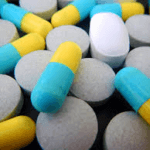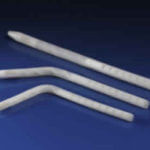Contents
What causes erectile dysfunction / ED / impotence?
Impotence / erectile dysfunction / ED occurs due to either psychological causes or organic causes. Organic causes are those due to a disease process affecting the arteries, the veins, the hormones…etc, rather than due to psychological causes.
Psychogenic impotence
Psychological stress results in #impotence / #erectiledysfunction / #ED . This is because stress results in production of certain neurotransmitters in the brain, the effect of which hinders erection and arousability.
Stress may be due to
- Performance Anxiety: where one is too anxious about his sexual performance and fears failure to the extent that he thinks about it during intercourse. His mind becomes pre-occupied with performance evaluation rather than sexual pleasure, which leads to fading of erection. When this happens once, one becomes more worried about his performance and thinks about it more often and deeper, leading to more failures, which in turn lead to more worries and pre-occupation. and so forth. This is the most common cause of psychogenic impotence / erectile dysfunction / ED.
- General stress: work stress, financial burdens and general preoccupation and exhaustion result in psychological stress and accordingly impotence / erectile dysfunction.
- Lack of self confidence, a negative body image such as the preoccupation with one’s penis being too small or one’s breast being too large.
- Depression, schizophrenia.
- Interpersonal Conflicts: this is when one has a negative feeling about the female partner, due to social disagreements, dislike to partner’s body image, smell…etc, preoccupation with another body image or attitude other than that of the female partner, or when there is high demand for sex on behalf of the female which cannot be coped with by the male.
- Misconcepts about sex: negative religious or social ideas about sex, being a sin, a crime..etc
- Childhood Trauma: psychological trauma in childhood may result from rape or from an aggressive parental response to discovering the child masturbating or exposed to pornography.
Causes of Organic Impotence / Erectile Dysfuction / ED
Organic causes of Impotence / Erectile Dysfunction are those due to a disease process affecting the arteries, the veins, the nerves, the spinal cord, the hormones, the brain tissue (not the psychological state)…etc, rather than due to psychological causes.
The fore mentioned all participate in initiating ad maintaining erection: hormones prepare the general atmosphere, the healthy upbringing and growth of genital organs and the sexual desire. The brain receives impulses from itself, from eyes, ears, skin…etc, and fires impulses along the spinal cord then the nerves to the penis, the arteries of which expand to pump blood, that is trapped in the penis by closure of the veins. The penis expands on account of the pumped blood and acquires rigidity. The penile tissues have to be normal and elastic to expand in response to the pumped blood. Any disease affecting the aforementioned will cause Impotence / Erectile Dysfunction.
For example, the arteries can be occluded due to atherosclerosis. The veins can be incompetent and cause venous leak impotence. The nerves can stop transmission of the impulse due to diabetes mellitus. The spinal cord can stop transmission due to disc prolapse or injury. Hormones may become disturbed due to abuse of certain drugs or due to tumors. All this cause impotence / Erectile Dysfunction.
Atherosclerosis
Atherosclerosis is accumulation of fat and calcium under the inner wall of blood vessels leading to narrowing and decreased blood flow through those vessels. It is favored by hypertension, diabetes mellitus, hypercholesterolemia and smoking.
Atherosclerosis is one of the most common causes of Impotence / Erectile Dysfunction, since narrowing of the cavernosal artery that feed the penis results in decreased blood flow into the penis. Erection relies on blood flow.
Diabetes Mellitus
Diabetes mellitus occurs due to lack of insulin, which is the hormone responsible for uptake of glucose (sugar) by the cells. This hormone is secreted by the “pancreas”.
When diabetes occurs, sugar is not uptaken by the cells and accumulated in blood leading to high level of glucose in blood. This glucose damages nerves leading to slow transmission of impulses.
Accordingly, in diabetes, impotence occurs due to lack of transmission of impulses from the brain to the penis. Diabetes also damages the nerve endings in the penis that secrete a substance called “nitric oxide”, responsible for initiating erection. Moreover, diabetes favors atherosclerosis which in turn results in impotence. Finally, diabetes may result in impotence merely because of fear of impotence (psychological) rather than actual organic disease.
Diabetes is one of the most common causes of impotence. About 50% of men with diabetes will suffer a degree of impotence / erectile dysfunction.
Medications / Chemicals
Many drugs can cause impotence, especially when abused without medical supervision:
1-Antihypertensive drugs: most types of antihypertensive drugs can cause a degree of impotence. However, they are life saving and are a necessity. One category of antihypertensive drugs that does not cause impotence is ACE-inhibitors. A specialized physician can tailor therapy to avoid erectile dysfunction or prescribe adjunctive medications to override the effect of the antihypertensive.
2-Anti-depressents and Anti-psychotics: Most of these drugs cause impotence. Again, medication type and dose can be adjusted to avoid impotence, or adjunct medications can be prescribed to override impotence caused by those necessary psychiatric medications.
3-Hormones or hormone-containing drugs may cause impotence if they have estrogenic effects (estrogen is the female sex hormone). An example is anti-estrogens used in treatment of male infertility. They oppose estrogen by competing with it for its receptors on various cells, being extremely similar to it. This similarity may cause them to have some estrogenic effects.
Hormonal Imbalance as a Cause of Impotence / Erectile Dysfunction / ED:
1-Testosterone:
Testosterone is the male sex hormone, responsible for normal development of sexual organs and for interest in sex (libido / sexual desire).
Lack of testosterone results in impotence / erectile dysfunction, mainly due to loss of libido (loss of sexual desire).
Lack of Testosterone may occur in a normal state in ageing men, since it level decreases by age.
Lack of Testosterone may occur to a disease affecting the testis or the pituitary gland (gland in the brain that secretes the hormones that stimulate all other glands to secrete their hormones, including the testis secreting Testosterone).
Testosterone level in blood may be normal, but there is insensitivity of testosterone receptors on various cells, which lead to failure of normal development or impotence.
2-Prolactin:
Is the hormone responsible for milk secretion in the female. It is normally present in males as well, though in low concentration.
Increased prolactin level in a male may result in impotence or infertility. Prolactin increases on account of intake of certain drugs, in case of renal failure, in case of some benign brain tumors..etc
Venous Leak
For erection to occur, blood must gush into the penis through wide open arteries, and must stay inside the penis and accumulate. Blood is trapped inside the penis when the veins shut-off. If the veins are not tightly shut, blood seeps out of the penis and erection does not occur, or it occurs but fades rapidly. This is termed “Venous leak”.
There is no known cause for venous leak, apart from some cases with inborn abnormal veins.
Fibrosis of the Penis
Fibrosis is the deposition of inelastic tissues, usually to rebuild and bridge a gap at the site of injury.
Fibrous tissue in the penis leads to shortening, curvature and loss of erection in some cases, being inelastic and being deposited where blood should flow to fill up the penis.
Fibrosis may occur in the penis due to a disease named “Peyronie’s disease” the cause of which is not known, but is commonly attributed to diabetes and rough sexual intercourse.
Fibrosis may also occur following prolonged untreated priapism, or due to repeated injection of the penis to induce erection in cases of impotence (intra corporal injection), irradiation for treatment of cancer, among other causes.
Other Causes
There are many more reasons for organic impotence, such as liver failure, renal failure, hyperthyroidism, hypothyroidism, radiotherapy and surgical treatment for cancer of the prostate.
Life Style as a Cause
Most causes of impotence can be avoided with healthy living: regular exercising, abstinence from smoking, alcohol and drug abuse, dieting and weight regulation.
Conversely, a sedentary life style, overeating, smoking, alcohol and drug abuse may cause impotence.



